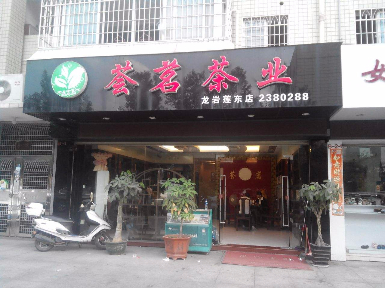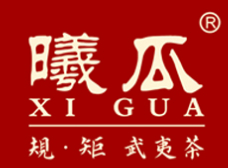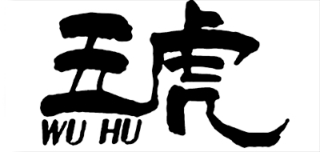浔茗茶业品牌怎么样 申请店铺
外推网助力浔茗茶业品牌出海!将品牌入驻外推网,定制浔茗茶业品牌推广信息,可以显著提高浔茗茶业产品曝光,简直是跨境电商爆单神器!目前仅需1000元/年哦~

浔乃古文的通假字,起源于史记中的一段记载,是寻找的意思,茗指一年之中春初之时采摘的刚抽芽的嫩芽,意为极嫩之茶。浔茗茶业的历史渊源就在于“怡和茶行”。 相传,清雍正三年(公元1725年)前后,西坪尧阳松林头(今西坪镇松岩村)一老茶农,勤于种茶,又信奉观音,每日晨暮必在观音像前敬奉清茶一杯,数十年不辍。有一天晚上,茶农在熟睡中梦见自己荷锄出门,行至一溪涧边,在石缝中发现一株茶树,枝壮叶茂,芬芳诱人。茶农好生奇怪,正想探身采摘,突然传来一阵狗吠声,把一场好梦扰醒。第二天清晨,茶农循梦中途径寻觅,果然在观音仑打石坑的石隙间,发现一株如梦中所见的茶树。他细加观察:茶树叶形椭圆,叶肉肥厚,嫩芽紫红,异于它种。他喜出望外,遂将茶树移植在家中的一口破铁鼎里,悉心培育。茶树经数年的压枝繁殖,株株茁壮,叶叶油绿。于是茶农便适时采制,果然茶质特异,香韵非凡。他视为家珍,密藏罐中,每逢贵客嘉宾临门,才取出冲泡品评。凡饮过此茶的人,均赞不绝口。一天,有位塾师饮了此茶,便惊奇地问:“这是何好茶?”茶农就把梦中所遇和移植的经过详告塾师,并说此茶是在岩石中发现,岩石威武胜似罗汉,移植后又种在铁鼎中,想称它为“铁罗汉”。塾师听后摇头道:“有的罗汉狰狞可怖,好茶岂可俗称。此茶乃观音托梦所获,还是称‘铁观音’才雅!”茶农听后,连声叫好。铁观音也就由此定名了。1757年,安溪感德人氏陈创立怡和茶庄,以此纪念安溪铁观音的出现,此后浔茗茶庄精研铁观音茶叶的制作技术,终于自成一脉,所制作出来的铁观音色青,味香,口感醇厚。在茶界享有很高声誉。1771年怡和茶庄,更名为怡和茶行,正式涉足茶叶批发生意,由原来的单一的茶叶生产转变到茶叶生产、批发、零售一体化。1938年,日本侵略厦门,怡和茶行也因此随着战火而停止经营。2007年“怡和茶行”正式更名为现在的浔茗茶业有限责任公司。
Xun is a fake word in ancient Chinese, which originated from a section of historical records. It means to look for. Ming refers to the newly sprouted buds picked at the beginning of spring in the middle of a year, which means extremely tender tea. The historical origin of Xunming tea industry lies in "Yihe tea industry". It is said that around the third year of Yongzheng period (1725 A.D.), an old tea farmer in songlintou, yaoyang, Xiping (now Songyan village, Xiping town) was diligent in planting tea and believed in Guanyin. Every morning and evening, he would worship a cup of Qingcha in front of the statue of Guanyin, and he would not stop for decades. One night, while sleeping, the tea farmer dreamed that he was going out with a hoe and went to a stream. He found a tea tree with strong branches, lush leaves and attractive fragrance in the cracks of the stone. The tea farmer was so strange that he was trying to lean over to pick it. Suddenly, a dog barked and woke up a good dream. The next morning, the tea farmers followed the path of their dreams and found a tea tree like the one they had seen in their dreams in the stone gap of the stone pit in guanyinlun. He carefully observed that the leaves of tea tree were oval, with thick flesh and purple buds, which were different from other species. He was so overjoyed that he transplanted the tea tree into a broken iron tripod at home and cultivated it carefully. After several years of propagation, the tea plant is robust and the leaves are oily green. Therefore, the tea farmers picked the tea at the right time. As expected, the quality of the tea is special and the fragrance is extraordinary. He regarded it as a treasure of his family. It was hidden in a jar. Every time a distinguished guest came to the door, he took out the brew for comment. Everyone who has drunk this tea is full of praise. One day, a private teacher drank the tea and asked in surprise, "what kind of tea is this?" The tea farmer told the teacher in detail about the experience of the dream and transplantation, and said that the tea was found in the rock. The rock is more powerful than the arhat. After the transplantation, the tea was planted in the iron tripod, and he wanted to call it "the iron arhat". After hearing this, the teacher shook his head and said, "some Arhats are ferocious, how can good tea be called. This tea is obtained by Guanyin's dream. It's only elegant if it's called Tieguanyin After the tea farmer listened, he called out. Tieguanyin was named from this. In 1757, Yihe tea house was founded by Chen Gande of Anxi to commemorate the emergence of Tieguanyin. Since then, Xunming tea house has studied the production technology of Tieguanyin tea, and finally formed a vein of its own. The Tieguanyin produced is green in color, fragrant in taste and mellow in taste. It enjoys a high reputation in the tea industry. In 1771, Yihe tea house was renamed Yihe tea house, and formally involved in tea wholesale business. From the original single tea production to the integration of tea production, wholesale and retail. In 1938, when Japan invaded Xiamen, Yihe tea company stopped operating with the war. In 2007, "Yihe tea shop" was officially renamed as the current Xunming Tea Industry Co., Ltd.
本文链接: https://brand.waitui.com/32f92e6f2.html 联系电话:请联系客服添加 联系邮箱:请联系客服添加


















 浙公网安备 33011802001999号
浙公网安备 33011802001999号
